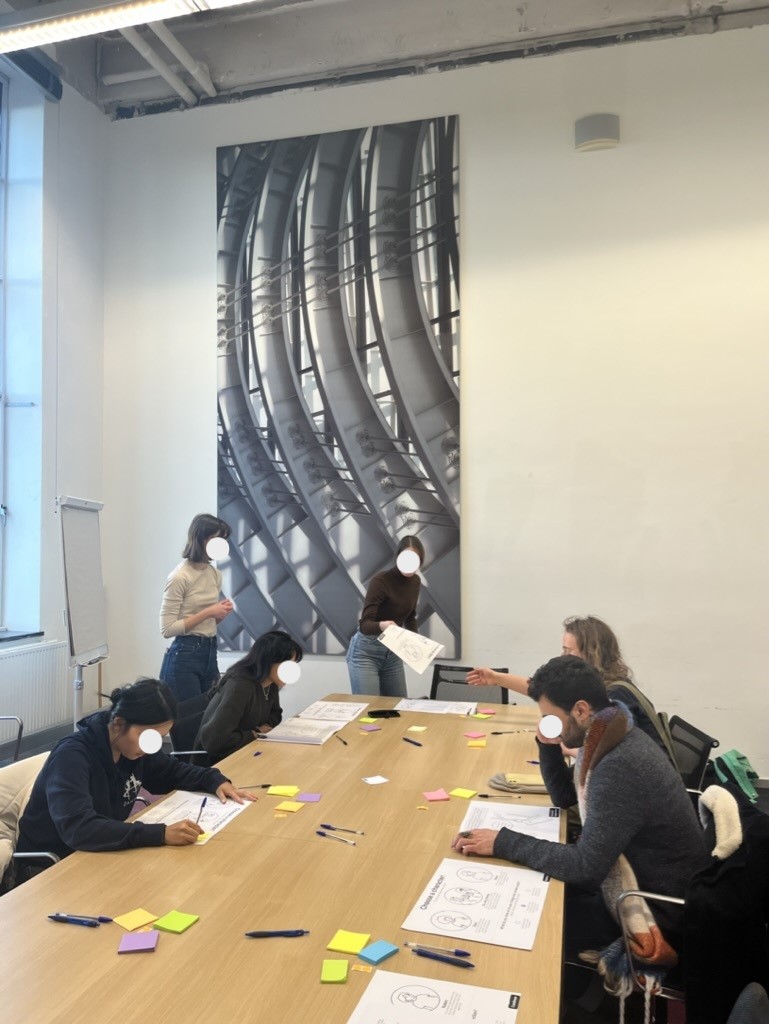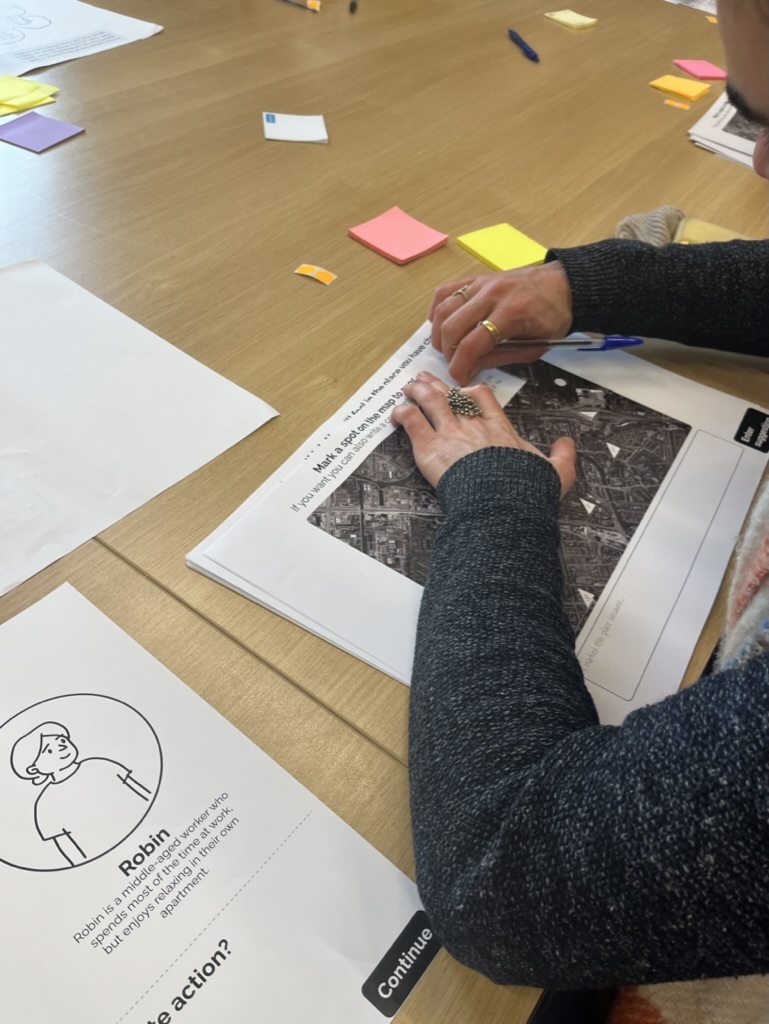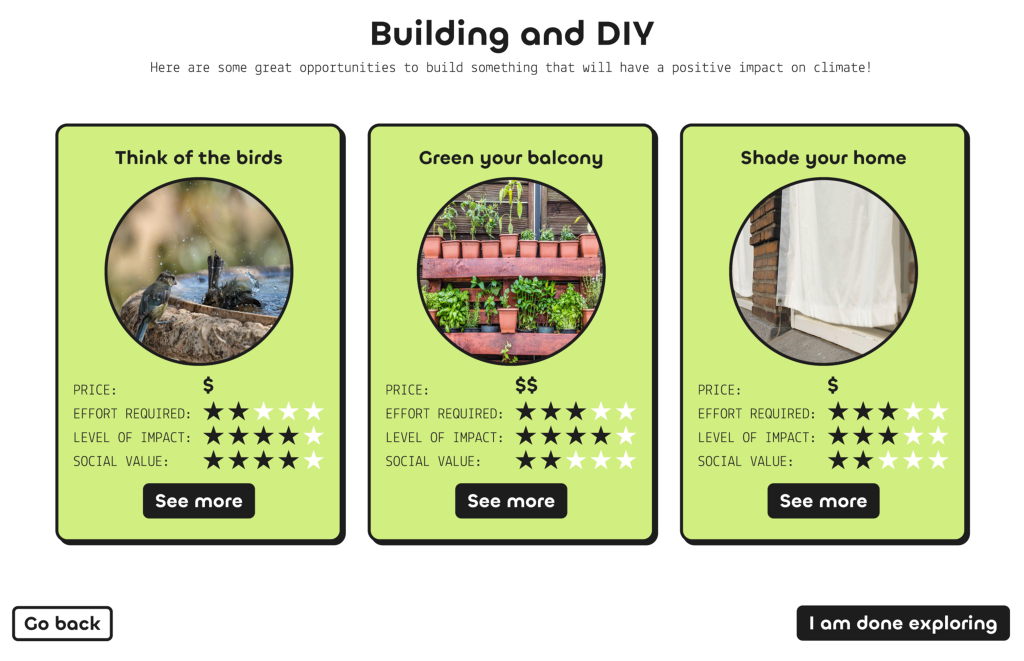Citizens meet Climate: Empowering Citizens in Climate Action
Juliana Gonçalves, Virginia Facciotto, Johanna Zehntner, Carissa Champlin, Geertje Slingerland
Digital platforms have become part of climate engagement strategy portfolios and have a great potential to reach larger numbers of citizens. However, most existing platforms for climate action fail to provide understandable and relatable climate data and lack accessibility and navigation intuitiveness. Moreover, they do not provide space for citizen users to share experiences and ideas about climate impacts and/or actions.
Climate change is real, but what can I do about it?
Climate change is increasingly affecting our living environments, for example with more frequent and intensive storms and longer and more severe heat waves. In response, cities worldwide have set ambitious climate targets, aiming to become climate-neutral through a range of interventions. Many of these require citizen support and participation, from the adoption of solar energy to the greening of roofs and backyards. Because a large part of the built environment is privately owned (about 60% in Dutch cities), the success of these initiatives depends on engaging citizens in climate action. However, citizens generally lack climate risk awareness and are uncertain regarding their ability to act. Many citizens do not realise how climate risks relate to their daily lives, and many more are overwhelmed and do not know how to act in times of climate crisis.
Digital climate action platforms have entered the portfolio of climate engagement strategies and have a great potential to reach larger numbers of citizens. However, existing platforms are ineffective and underutilised. They lack accessibility and navigation intuitiveness, failing to provide understandable and relatable climate information.

CmC is a digital participatory platform which empowers citizens to take climate action. It was developed in cycles of research-design-test with a user-centred approach. The platform achieves climate empowerment by (1) informing citizens about current and future climate risks through personalised storytelling, (2) connecting citizens and community initiatives, creating a sense of community, and (3) listening to citizens' experiences and linking them to existing opportunities of individual and collective action in their city.
1. Storytelling – At the beginning of the journey, citizens select an avatar that best represents them. Each avatar represents different everyday concerns, climate awareness levels, and the ability to take climate action. The avatar guides the users on the platform through a climate story that connects climate impacts to everyday life in the present and the future, seeking a balance between a realistic and hopeful framing of the climate crisis. This feature increases the feeling of personal identification, which is essential to raising awareness about climate change while avoiding climate anxiety.
2. Climate data and personal reflection - The avatar’s journey exposes citizens to climate data, such as the intensity and frequency of heat waves. Data are presented in relation to the avatar’s experience with climate impacts in the urban environment, creating a concrete connection between scientific data and personal experiences. Throughout the journey, citizens are invited to share their experiences and perceptions about climate impacts. This feature helps build climate literacy and awareness as citizens acknowledge the impacts of climate change on their living environment.

3. Motivation and action - At the end of the journey, citizens are invited to select a climate action initiative to help their avatar address a climate impact in the climate story. This feature presents citizens with various climate action options, individual and collective, without forcing or shaming them to take action.
The CmC prototype is available for three Dutch cities: Delft, Rotterdam, and Amsterdam. It has been tested at various moments, receiving positive user feedback. The users appreciate the use of the avatar and storytelling as well as the story timeline that includes present and future climate impacts. Questions about platform ownership have been raised, indicating the importance of embedding participatory tools meaningfully in decision-making processes to avoid tokenism that only leads to mistrust and citizen fatigue. Since our project cannot ensure public commitment to participation processes, we focus on creating opportunities for collective action and connections between community action, public initiatives, and private organisations.

Share
Contacts
- -
- -
- -
- -
- -
